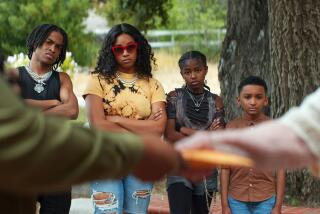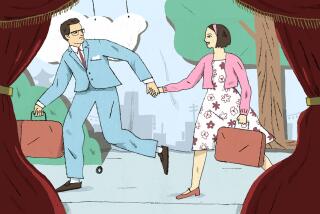Don Draper is, in the end, just a baby boomer’s dad
Matthew Weiner, the creator of “Mad Men,” brought his melodrama of 1960s America to an end Sunday night, closing with an intriguing riddle involving Coca-Cola and the show’s central character, Don Draper. Fans will be parsing those last couple of minutes for days, if not years, to come.
Over seven seasons, Weiner wove an addictive tale that, quite refreshingly, did not involve cops, gangsters or an endless trail of murders. Instead, he got us hooked on the very complicated personal and professional lives of men and women working in the advertising game on Madison Avenue, setting his story amid a very detailed and very real backdrop of one of the most tumultuous decades of this nation’s history.
For baby boomers, much of the fun of following the series came from picking out the guideposts that marked the progression of our childhoods. There were the news events, usually seeping into the narrative from a radio report or a news alert on a fuzzy black-and-white television screen — the Kennedy assassination, the Cassius Clay/Sonny Liston heavyweight bout, the civil rights movement, the Vietnam War, the moon landing. And there were the homey details — the clothes kids wore, the packaged food their stay-at-home moms put on the table, the rotary telephones, the midcentury modern furnishings that gleamed in turquoise and orange.
Luckily, I was not neglected and ignored like Don Draper’s children, but I could still identify with their world. I remember as a little boy bouncing around in the back seat of the family car with no seat belt to be buckled into. I remember tossing empty milkshake cups and hamburger wrappers out the car window before anti-littering campaigns got us all to realize what a crazy thing that was. I remember my dad puffing on a pipe or a cigar as he drove, clouding up the car with smoke. “Mad Men” paid attention to details like these and took baby boomers down memory lane, even if our fathers were not womanizing, alcoholic, chain-smoking ad men.
To his credit, Weiner did not try to make Don Draper something he was not. Draper was a Frank Sinatra kind of guy and, as the show and the decade moved on, he did not really change with the times. He was a square; early on, uncomfortable with beatniks and, later, just as uncomfortable with hippies. He never grew out his hair or beard, never got into the Rolling Stones or the Beatles. Draper remained a man of the Silent Generation with a tough, masculine exterior hiding deep sorrows and disturbing secrets.
Draper was a quintessential American character, a restless loner who came most alive when he was on the road or on the run. Throughout the show, he kept being drawn to California, a place that, in the ‘60s, especially, lured people in search of reinvention. From the glistening swimming pools of Beverly Hills and the glitz of the entertainment business to the Summer of Love in San Francisco and the communal soul searching at Big Sur, California dreaming was more than just a song. It made sense that, at the end, a sunny cliff by the Pacific would be where we would catch our last glimpse of Don Draper.
Not that he stayed there. Don Draper had many years to go. If he were alive today (and not a fictional person), he would be in his late 80s. Given the damage those decades of cigarettes and alcohol would have done to his body, he probably would not be in great shape. And it is not hard to imagine who would be taking care of him.
Draper’s daughter, Sally, the most visible representative of the boomers in the “Mad Men” saga, turned out to be the most stable and responsible character in the series, despite the distracted self-absorption of her parents. I can imagine her now, like so many women of her generation, devoting hours to finding the right assisted-living arrangement for her dad and showing up, day after day, to tend to his needs. And I can image Don Draper, still disappointed with life and ignoring the sacrifices of his daughter.
Or maybe it would be different. Maybe he would have survived long enough that, at the end of a lifelong search for love and belonging, feeling the tender hand of his daughter caressing his brow, he would be thinking to himself: “Yeah, this is it. This is the love I’ve been looking for.”
More to Read
A cure for the common opinion
Get thought-provoking perspectives with our weekly newsletter.
You may occasionally receive promotional content from the Los Angeles Times.







